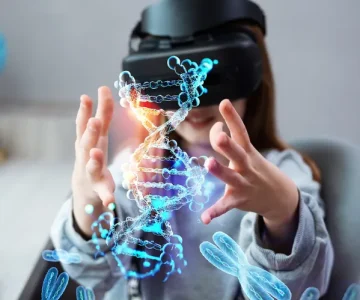Education is evolving faster than ever before. As we approach 2030, the ways we teach and learn are set to undergo major transformations driven by technological innovation, shifting workforce demands, and a globally connected society. The traditional classroom is no longer the sole gateway to knowledge—learning is becoming more personalised, lifelong, and accessible than ever.
Here are ten powerful trends shaping the future of education in the next decade.
1. EdTech Becomes the New Normal
Educational technology is no longer an optional extra—it’s becoming the backbone of modern learning. By 2030, experts predict the global EdTech market could reach astonishing heights, fuelled by the push for customised learning paths, the expansion of online platforms, and the demand for future-ready skills. From AI-powered tutoring tools to immersive virtual classrooms, technology will be woven into the very fabric of education.
2. The Era of Upskilling and Reskilling
Automation and AI are transforming the job market at lightning speed, making lifelong adaptability essential. Workers will increasingly need targeted training to pivot into new roles or enhance their existing skill sets. Short, focused courses and professional certifications will help people stay competitive, whether it’s an accountant learning data analytics or a marketer mastering AI tools.
3. Lifelong Learning as a Way of Life
The idea that education ends after graduation is fading. By 2030, people from every stage of life will be engaging in continuous learning, fuelled by easily accessible online resources. Micro-credentials—small, stackable certifications—will allow learners to build expertise in specific areas at their own pace. Flexible schedules, blended formats, and mobile-friendly courses will make learning fit seamlessly into daily life.
4. Personalised Learning at Scale
One-size-fits-all approaches are giving way to highly individualised learning journeys. Using AI and advanced analytics, educators can tailor lessons to match a student’s strengths, weaknesses, and preferred learning style. Struggling with a topic? You’ll get extra practice and guidance. Mastered it quickly? You’ll move on to the next challenge. This shift will empower students to take charge of their progress and reach their full potential.
5. A Global Classroom Without Borders
By 2030, education will be more international than ever. Digital platforms will connect students and teachers across continents, enabling collaboration on projects, cultural exchange, and shared problem-solving. This interconnectedness will foster global awareness, empathy, and cooperation—skills that are increasingly important in tackling worldwide challenges.
6. Gamified Learning for Motivation and Fun
In the future, learning will feel less like a chore and more like a game. Points, challenges, and rewards will keep students motivated while improving retention. From history quests to science challenges, gamification will create interactive, competitive, and collaborative environments where students are eager to participate and learn.
7. Prioritising Social and Emotional Skills
Success in life isn’t just about academic knowledge. Social and emotional learning (SEL) will be a core part of curricula by 2030, focusing on skills like self-awareness, empathy, decision-making, and relationship building. Through group projects, role-play, and mindfulness practices, schools will help students develop into well-rounded individuals ready for both personal and professional success.
8. Immersive Learning Through AR and VR
Augmented and virtual reality will bring lessons to life in ways once thought impossible. Students might explore ancient ruins in a history class, dive deep into the human body for biology, or practice engineering in a simulated environment. These tools will make learning more engaging, memorable, and practical.
9. Learning in Bite-Sized Pieces
With busy schedules and short attention spans, microlearning—delivering content in quick, focused bursts—will become a go-to approach. Whether through short videos, interactive quizzes, or mobile lessons, learners can pick up skills during a commute, coffee break, or downtime, reinforcing knowledge without feeling overwhelmed.
10. Building a Collaborative Learning Ecosystem
The future of education will be built on partnerships. Schools, businesses, governments, and tech companies will work together to create integrated learning networks. These collaborations will make it easier for anyone, anywhere, to access high-quality education that meets both personal goals and industry needs.
Final Thoughts
By 2030, education will be more personalised, connected, and adaptable than ever before. The focus will shift from simply earning a degree to cultivating skills, mindsets, and adaptability that last a lifetime. As we embrace these trends, the classroom of the future will be less about where you learn and more about how—and why—you learn.





